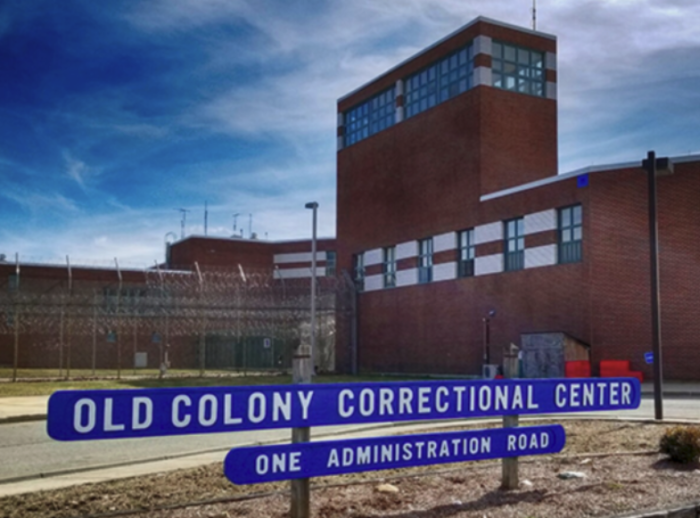 William Allen in an undated photo. (Photo courtesy of Att. Kristine McDonald, posted WBUR)
William Allen in an undated photo. (Photo courtesy of Att. Kristine McDonald, posted WBUR)
Today, a surprise turn of events occurred in the 4th hour of merely the second commutation hearing held for a lifer in more than a decade. William Allen, who has served twenty-seven years of a first-degree life sentence, must have been as surprised as the rest of us when Plymouth District Attorney Timothy Cruz made headlines with “Today I am taking the unprecedented step in supporting [Allen’s] petition for commutation.”
No one serving a life-without-parole sentence has been granted a commutation since 1997. The Mass Advisory Board of Pardons (the Parole Board) hears these cases and then forwards successful ones to the Governor.
Having the DA support a commutation is certainly unusual. But Cruz mentioned how this is a “rare case,” and he was asking [the Board] to recommend to Gov. Baker that Allen’s petition be forwarded.
Thomas Koonce, who had a commutation hearing on Oct. 27, 2020, and was approved by the Board of Pardons, is still waiting for the Governor to sign off and commute his first-degree life sentence to second-degree with parole eligibility.
Allen, who was charged with armed robbery and the felony murder of Purvis Bester in 1994, received a life-without-parole sentence as a joint venturer. He has admitted that he participated in the robbery but his co-defendent committed the murder, took a plea, served a second-degree sentence, and is now out on parole.
These factors plus the fact that Allen made “a strong case” for himself as Board member Tonomy Coleman and others noted, may be enough for Allen’s sentence to be commuted. Once the Parole Board votes to send his petition to Governor Charlie Baker, the Governor has a year to sign off on the petition. Then Allen will have to seek parole from the Board.
A recent Massachusetts Bar Association Clemency Task Force report pointed out the woeful lack of commutations (reduction of sentence), and pardons (forgiveness of the underlying conviction) in Massachusetts and made recommendations to the Governor.
At today’s hearing, all the Board members commented on the progress and transformation as well as the numerous programs that Allen had completed behind bars. Board member Tina Hurley did specifically mention his powerful work ethic, to which he responded “I try to do a good deed a day.”
Allen, who has been active in a particularly important program for his development, the Companion Program, told a story that detailed his growth. He said that before he became a companion at Old Colony, he helped out at Bridgewater Hospital. There he met Eddie, who was in his 60’s, relegated to the infirmary with slight dementia. Eddie wasn’t allowed out of the unit, said Allen, but one day Allen heard him singing and so he started singing with him. “I saw him dancing, and then I started dancing with him,” he said. In 2004, Allen became Eddie’s companion. “We were The Odd Couple. He was an old white guy.” William is a Black man, now in his late 40’s.
Since then, he has been a companion to seven men. Chair Gloriann Moroney complimented him on helping people feel less alone.
Allen talked about how he thought about Bester every day and lived his life in a way that “honors” him. Allen wants to help young people like his son, whom he feels he abandoned to the streets and is currently incarcerated.
“He’s a very good candidate for commutation,” said DA Cruz.




